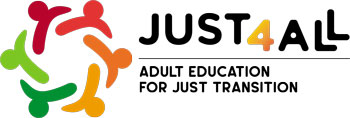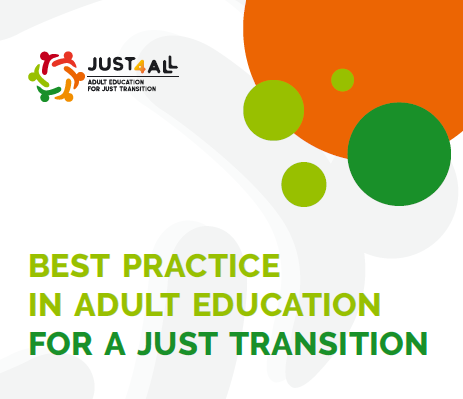JUST4ALL Best Practices #6: General Public and Other Stakeholders
The practices gathered in the framework of the Just4All project highlight the vital connection between environmental education and economic empowerment, employing innovative strategies that bridge this gap by linking environmental issues to participants’ daily lives.
By addressing not only educational needs but also providing other basic needs, these practices ensure comprehensive assistance that helps systematically disadvantaged groups commit and overcome barriers in the education process.
Civic and environmental education are deeply intertwined, collectively empowering disadvantaged communities by building networks and offering advocacy training. This enables active participation in political debates and the application of advocacy techniques within the context of the green transition.
The reported impact of these practices is extensive, encompassing psychological benefits such as improved mental health and reduced isolation, as well as enhanced citizenship, a stronger sense of community belonging, increased engagement in environmental activism, and economic empowerment through practical skills development. Read the summary and analysis on the collection of practices below.




